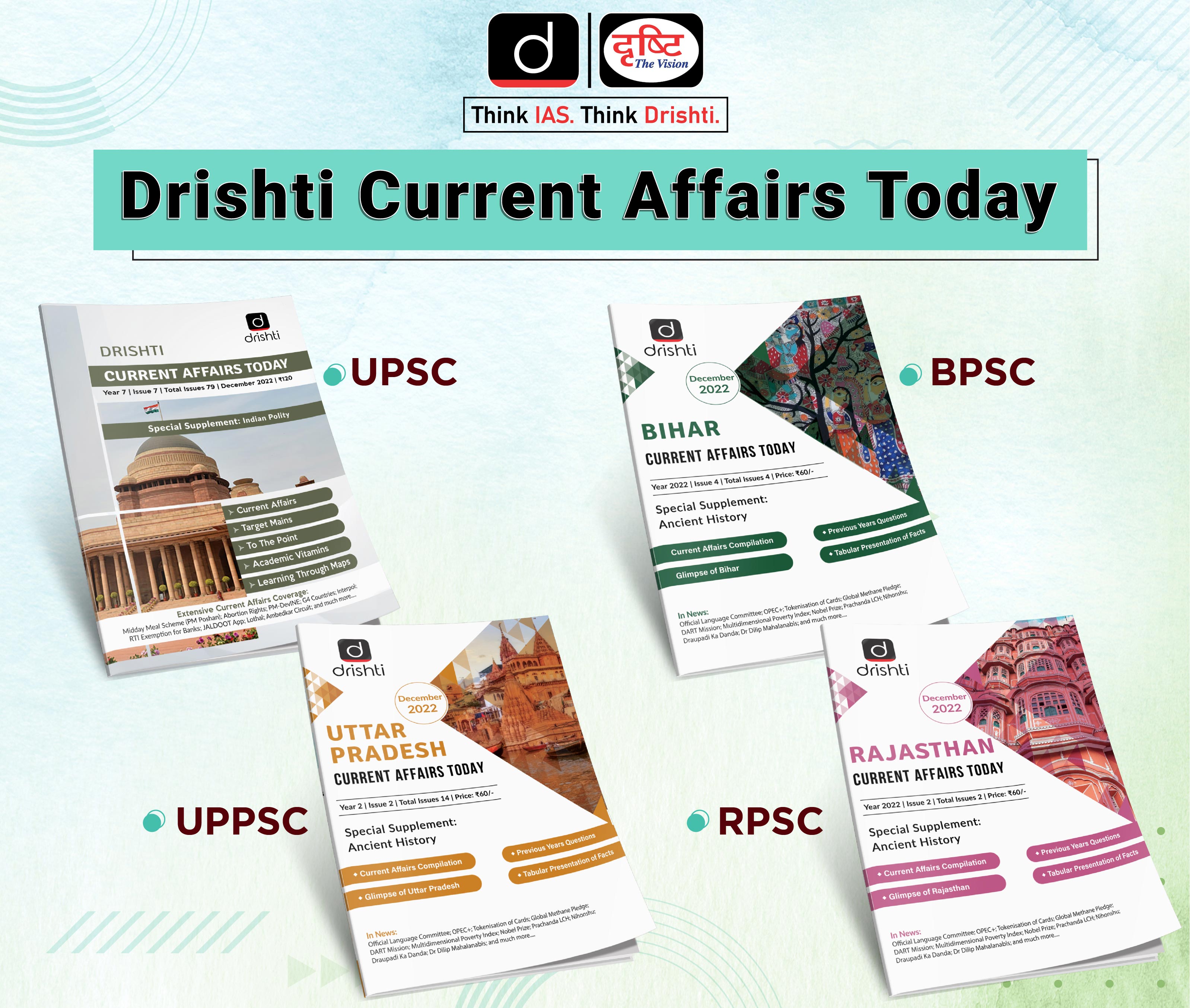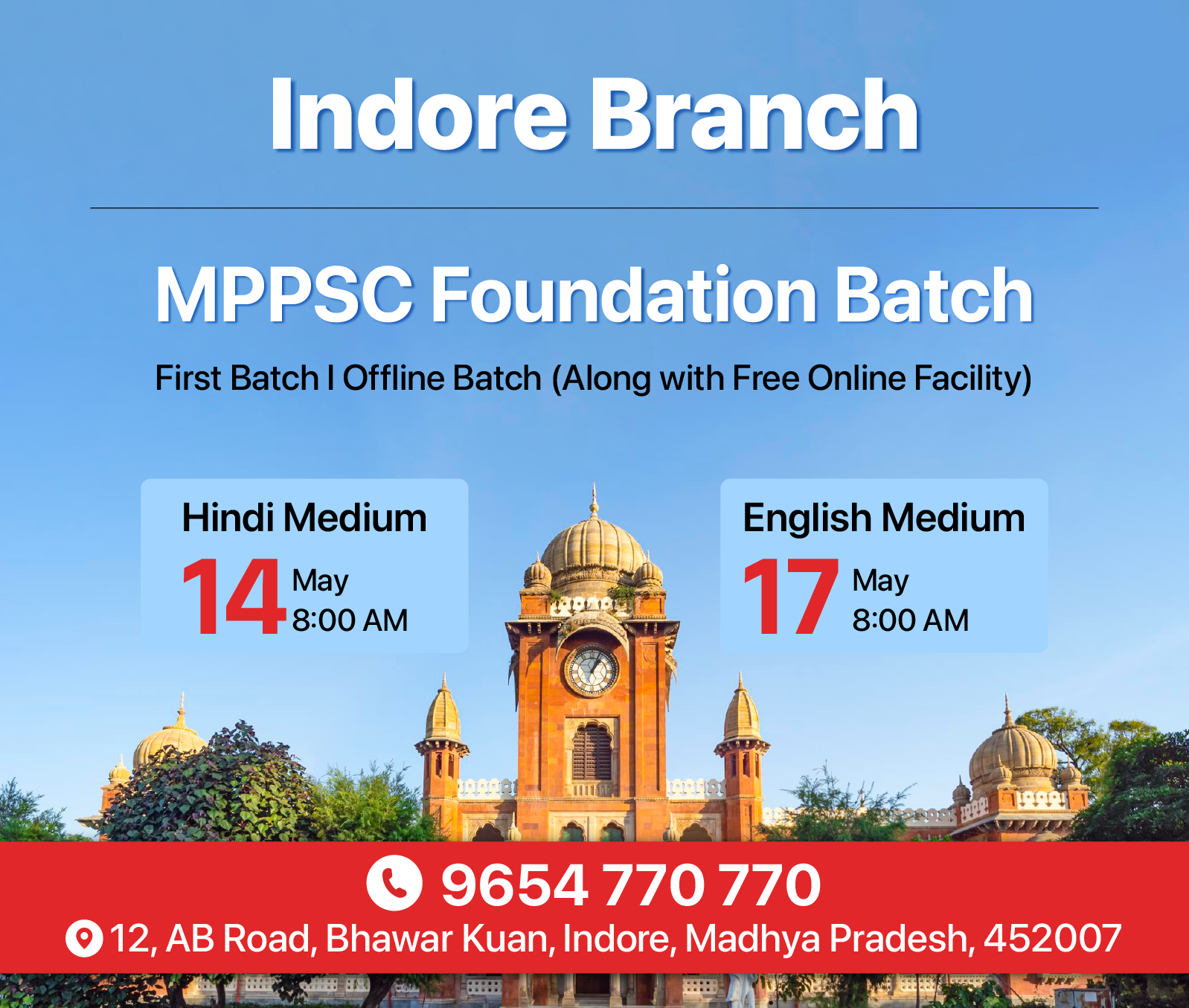Rajasthan Switch to Hindi
Tribals Demand for Bhil Pradesh
Why in News?
Recently, The Rajasthan tribal community has demanded for the creation of a new state called 'Bhil Pradesh'.
Key Points
- The tribal society is demanding the creation of a new state by merging 49 districts from Rajasthan, Maharashtra, Gujarat, and Madhya Pradesh.
- Additionally, there is a request to incorporate 12 districts from the previous 33 districts of Rajasthan into the new state.
- Thirty-five organizations, including Adivasi Parivar, the largest group in the Bhil community, organized a huge rally.
- Tribal people from Madhya Pradesh, Gujarat and Maharashtra were also gathered for the meeting held at Mangarh Dham in Banswara.
Bhil community
- The Bhil are one of the largest tribal groups, living in Chhattisgarh, Gujarat, Karnataka, Madhya Pradesh, Maharashtra, Andhra Pradesh and Rajasthan.
- The name is derived from the word ‘billu’, which means bow.
- The Bhil are known to be excellent archers coupled with deep knowledge about their local geography.
- Traditionally, experts in guerrilla warfare, most of them today are farmers and agricultural labourers. They are also skilled sculptors.
- Bhil women wear traditional saris while men are dressed in long frocks and pyjamas. The woman put on heavy ornaments made of silver, brass along with rosaries of beads and silver coins and earrings.


Rajasthan Switch to Hindi
Rajasthan Citizenship Camps for Minority
Why in News?
The Rajasthan government is going to organize special camps to grant Indian citizenship to minority refugees from Afghanistan, Pakistan, and Bangladesh.
Key Points
- The rules and procedures for granting Indian citizenship to minority refugees from Afghanistan, Pakistan, and Bangladesh have been simplified. District collectors are now authorized to issue citizenship certificates.
- According to the sources, 2,329 people have been granted citizenship in the state from 2016 to 2024.
- A total of 1,566 applications are pending at present. Of these, Intelligence Bureau reports are awaited in 300 cases.
Citizenship Amendment Act, 2019
- The Citizenship (Amendment) Act, 2019 seeks to amend the Citizenship Act, 1955.
- The CAA provides citizenship on the basis of religion to six undocumented non-Muslim communities (Hindus, Sikhs, Buddhists, Jains, Parsis and Christians) from Pakistan, Afghanistan and Bangladesh who entered India on or before 31st December, 2014.
- It exempts the members of the six communities from any criminal case under the Foreigners Act, 1946 and the Passport Act, 1920.
- The two Acts specify punishment for entering the country illegally and staying here on expired visas and permits.


Uttarakhand Switch to Hindi
Harela Festival 2024
Why in News?
Harela is a Hindu festival celebrated in Uttarakhand and some regions of Himachal Pradesh, particularly in the Kumaun region with great enthusiasm.
Key Points
- Harela falls on the first day of Shravan-Maas, according to the Hindu Luni-Solar calendar, marking the start of the monsoon season and the planting of new crops.
- This is an important time for the state's agriculture as it marks the "Harela," derived from the Kumaoni word "Hariyala," meaning "Day of Green," believed to have originated in the Kumaon region.
- The festival Hariyali or Rihyali is celebrated in Kangra, Shimla. Sirmour, and Dakhrain in the Jubbal and Kinnaur regions of Himachal Pradesh, where people pray for a good harvest and prosperity.
- The festival is associated with the ceremonial celebration of the marriage between Lord Shiva and Goddess Parvati.
- This event is considered auspicious for farmers, as it signifies the start of the planting season in their fields.


Jharkhand Switch to Hindi
New Acting Chief Justice of Jharkhand
Why in News?
Recently, Justice Sujit Narayan Prasad has been appointed as the acting chief justice of the Jharkhand High Court, following the departure of Chief Justice Bidyut Ranjan Sarangi.
Key Points
- According to the law ministry, Justice Prasad will assume charge on July 20,2024.
- Appointment of Acting Chief Justice:
- Article 223 of the Constitution of India deals with the appointment of an acting Chief Justice.
- According to this, when the office of the Chief Justice of a High Court is vacant or when such a Chief Justice, on account of absence or otherwise, is unable to perform the duties of his office, the duties of the office shall be performed by such person. Other judges of the Court may be appointed by the President for this purpose.
Appointment of HC Judges
- Article 217 of the Constitution: It states that the Judge of a High Court shall be appointed by the President in consultation with the Chief Justice of India (CJI), the Governor of the State.
- In the case of appointment of a Judge other than the Chief Justice, the Chief Justice of the High Court is consulted.
- Consultation Process: High Court judges are recommended by a Collegium comprising the CJI and two senior-most judges.
- The proposal, however, is initiated by the Chief Justice of the High Court concerned in consultation with two senior-most colleagues.
- The recommendation is sent to the Chief Minister, who advises the Governor to send the proposal to the Union Law Minister.
- The Chief Justice of the High Court is appointed as per the policy of having Chief Justices from outside the respective States.
- The Collegium takes the call on the elevation.


Madhya Pradesh Switch to Hindi
PM SVANidhi Scheme
Why in News?
According to the Union housing and urban affairs ministry, Madhya Pradesh has secured the first place under the ‘Best Performing State’ category in the Prime Minister SVANidhi scheme.
Key Points
- After Madhya Pradesh, Assam has been ranked second in the ‘Best Performing States- Innovation and Best Practices Award’ category.
- In the ‘Best Performing ULBs – Loan Performance with mega and million plus cities’ category, the Municipal Corporation of Delhi (MCD) has received the first place, followed by the Bruhat Bengaluru Mahanagara Palike (BBMP) and the Ahmedabad Municipal Corporation.
- The awards in the the National Urban Livelihood Mission (DAY-NULM) was also announced, with Kerala securing the first place in the category of ‘Systematic Progressive Analytical Real Time Ranking (SPARK), followed by Uttar Pradesh and Rajasthan.
PM SVANidhi Scheme
- Prime Minister Street Vendors AtmaNirbhar Nidhi (PM SVANidhi) was announced as a part of the Economic Stimulus-II under the Atmanirbhar Bharat Abhiyan.
- It has been implemented since 1st June 2020, for providing affordable working capital loans to street vendors to resume their livelihoods that have been adversely affected due to Covid-19 lockdowns, with a sanctioned budget of Rs. 700 crore.
- Aims:
- To benefit over 50 lakh street vendors who had been vending on or before 24th March 2020, in urban areas including those from surrounding peri-urban/rural areas.
- To promote digital transactions through cash-back incentives up to an amount of Rs. 1,200 per annum.
Deendayal Antyodaya Yojana-National Urban Livelihoods Mission (DAY-NULM)
- The mission was launched in 2014 and is being implemented by the Urban Ministry of Housing & Poverty Alleviation.
- It aims to uplift urban poor by enhancing sustainable livelihood opportunities through skill development.
- It is a Centrally Sponsored Scheme.
- Funding will be shared between the Centre and the States in the ratio of 75:25. For North Eastern and Special Category – the ratio will be 90:10.
- Its intended beneficiaries are urban poor (street vendors, slum dwellers, homeless, rag pickers), unemployed and differently-abled.










%20MPPCS%202025%20Desktop%20E.jpg)
%20MPPCS%202025%20Mobile%20E%20(1).jpg)










.png)
.png)











 PCS Parikshan
PCS Parikshan

